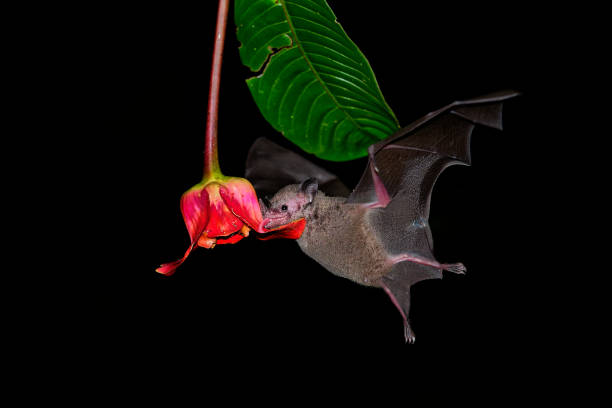Why saving agave and helping bats can secure a future for mezcal
By Jessica MasonCommunities across north-east Mexico are working with the Bat Conservation International (BCI) to help save agave plants used to make mezcal.

The agave, which has suffered delayed blooming due to severe droughts, feeds Mexican long-nosed bats as well as contributing greatly to the Tequila and mezcal sectors globally.
However, the population of the Mexican long-nosed bat has reportedly declined more than 50% in the past 10 years, with only 5,000 bats remaining and a lot of agave available has gone towards boosting mezcal production.
Kristen Lear, agave restoration program manager for BCI said: “Across their migratory range, through the Southwest US and Mexico, we’re actually seeing loss of natural agave habitat where these agave plants grow.”
Lear explained: “People in Mexico use agaves for many, many different things, including mezcal and Tequila. They’re just really important plants for the communities.”
The hope is that communities can work closely with the BCI to jointly raise funds to restore the agave plants so there is enough nectar for both wildlife as well as the drinks industry.
Partner Content
Between 2013 and 2017, according to Quartz statistics, Mexico’s exports of mezcal nearly quadrupled, to 2.7 million litres a year; in 2019, that figure rose to 5.8 million litres.
Reports warned that, in a bid to meet the sudden demand for mezcal and Tequila, many producers in Oaxaca and elsewhere began over-harvesting wild agaves.
Alfonso Valiente, an ecologist at the National Autonomous University of Mexico, reiterated how the disappearance of agaves from the wild threatens its landscape’s biodiversity and explained: “Entire ecosystems could collapse,”
The Mexican long-nosed bat was reportedly one of 10 species listed as imperiled by climate change in a 2021 report by the Endangered Species Coalition.
According to Valiente, the bats that sip nectar from agave flowers are important because they then go on to cross-pollinate not only agave plants but also columnar cacti, known as the pipe-organ vegetation of the Mexican landscape. “And to give you an idea, one hectare of cacti may produce more than a ton of fruits, which maintain more than 100 animal species in the area,” Valiente added, warning that if agaves disappear then it will have a knock-on effect on everything else.
Indeed, the biggest threat to Tequila also isn’t a shortage of agave. It’s a lack of bats and, to remedy this, a ‘Bat-Friendly’ initiative launched to help people seek out the most bat-friendly bottles available.
Related news
Diageo trades Cîroc stake for global Tequila push
Pimentae becomes available at Picturehouse cinemas
Jose Cuervo owner faces $80 million hit from Trump’s tariffs




